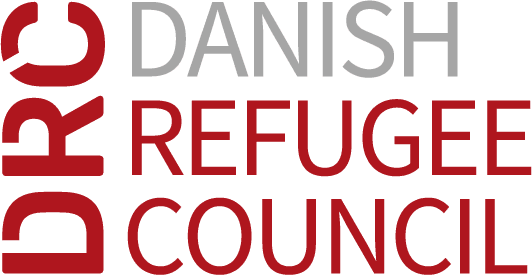

Afghanistan - diaspora engagement by women for women
13 January 2023
Afghanistan’s regime change in August 2021 complicated an already challenging humanitarian context. Even before, the country´s humanitarian situation was one of the worst in the world due to conflict, recurrent natural disasters, chronic poverty, drought and the COVID-19 pandemic. New challenges to human rights and basic freedoms, especially those of women, have arisen.
Desk review, Online monitoring and Fieldwork to gain evidence-based data
A mixed methods design with a participatory approach was used to explore the impact, outreach, and organization of diaspora emergency responses within Afghanistan, with focus on gender in all stages of the report process. In total, 60 diaspora organizations were included in the reports online media monitoring, while 22 diaspora networks participated in interviews and focus group discussions in Afghanistan, Europe, North America and Australia.
The report captures developments in Afghan diaspora response
Afghan diaspora organizations have supported their community at large and have continued to do so after August 2021. In continuation of the first Real-Time Review conducted between August and October 2021, DEMAC has continued to explore possible changes and developments of diaspora engagement from April to June 2022. This current report aims to capture the impact, outreach, and organization of diaspora emergency responses within Afghanistan and to assess if and how the recently arrived diaspora is strengthening the humanitarian response. Special focus has been given to Afghan diaspora women organizations and networks to assess a gendered response.
We have to de-gender and get rid of this male dominant aid distribution in Afghanistan to ensure that women are represented in all aspects of aid and humanitarian support in Afghanistan.
Who is the Afghan diaspora?
Globally, an estimated 5.85 million Afghans lived outside their home country as of mid-year 2020. Female migrants accounted for nearly 45 % of all Afghan migrants, and this share is lower than the global average of 48 % of female international migrants.
Nearly 74 % of the estimated 5.85 million Afghan migrants worldwide reside in neighboring countries in Southern Asia, such as Pakistan and Iran. The largest and oldest communities exist in Germany; large communities are based in the US, the United Arab Emirates, Russia, Turkey, Canada, UK, Sweden, Netherlands, Australia and Austria.
Areas of Intervention
DOs have an extended reach in Afghanistan to all provinces which includes minority groups, ethnic groups, internally displaced people and other vulnerable groups and physically remote rural communities. The reach of diaspora networks is supported by their representatives in country.

Key Findings & Recommendations
Shift focus: Both newer and more established diaspora organizations have shifted their focus towards humanitarian relief. Those efforts are supported by providing sustainable employment, development aid and a focus on the support and empowerment of women and girls in Afghanistan.
Attention on gender-specific activities: With the rolling back of human rights in Afghanistan, women-led and women-focused DOs have received more attention within the broader diaspora community as well as within the Afghan diaspora. A majority of the consulted diasporas (18 out of 22) have gender-specific activities ranging from specifically targeting women-headed households for health and food security packages to one DO continuing to fund microgrants for female entrepreneurs.
Many diaspora networks base their interventions on their area of specialization (e.g., health, education, food distribution, etc.), ethnicity or a given geographical area.
Enhance human-rights advocacy: Several DOs, especially those who are predominantly advocacy-focused, are exploring ways to increase their efforts on the recognition of women’s rights and press freedom. These DOs are approaching international institutions ranging from Amnesty International to UN Agencies.
Restore banking and fund transfers: With the collapse of the Afghan banking system, DOs have been forced to use informal exchange systems as a last resort. Therefore, DOs recommend that financial services and banking must be restored as soon as possible to allow access to existing funds.
Conclusion
This Real-Time Review of diaspora humanitarian engagement in Afghanistan concludes that changes have taken place since the initial report in Fall 2021. Diaspora are not only encountering new difficulties to deliver humanitarian activities, but they are also in the process of adapting to these challenges.
There remain many hurdles for diaspora humanitarian engagement, particularly in terms of transfer of funding and operations in the altered country context, but there are also growing opportunities in terms of coordinating with more institutional humanitarian actors. The importance of diaspora humanitarian assistance is growingly recognized by international actors. Especially in an operational context with many needs but limited access, like Afghanistan, it becomes clear that diaspora organizations are in a good position to take on a complementary role in terms of providing assistance to the affected populations.
DRC & DEMAC wish to thank DANIDA for their support to make this report possible!
Photo Credits: Afghanistan 2021/22 by Stefanie Glinski









